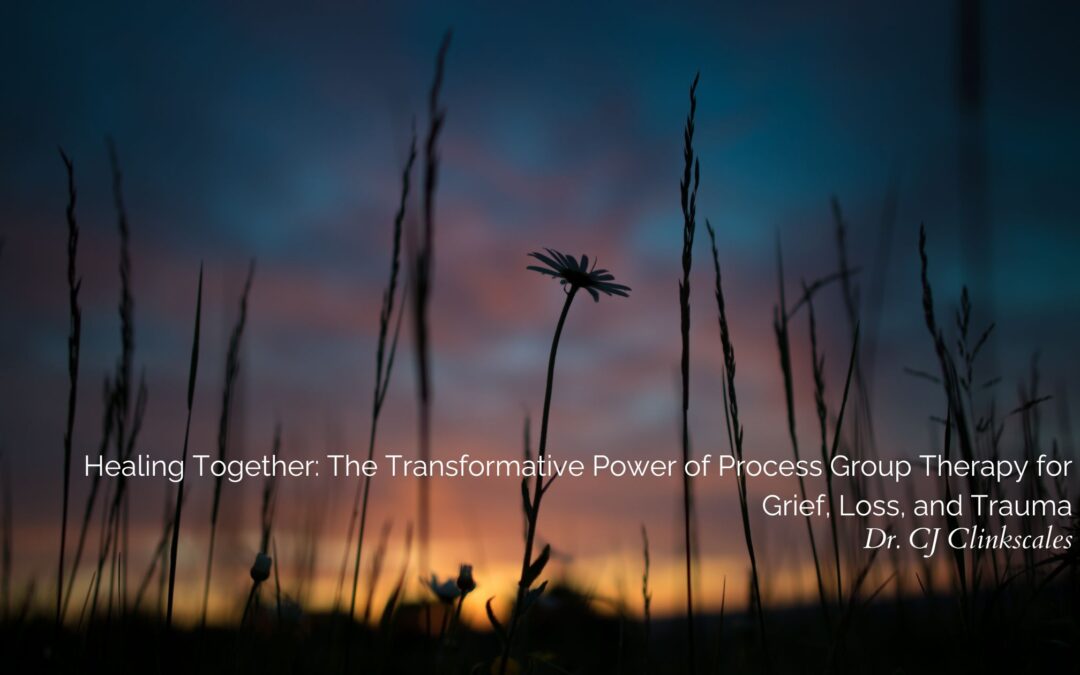In the intricate tapestry of human emotions, grief, loss, and trauma form some of the most challenging threads to navigate. These experiences often leave individuals feeling isolated, overwhelmed, and confused, struggling to make sense of their emotions. While traditional therapy offers valuable support, process group therapy emerges as a powerful and effective complement, fostering healing through shared experiences, empathy, collective feedback, and resilience.

One of the key benefits of process group therapy in dealing with grief, loss, and trauma lies in the creation of a supportive community. Participants share a common ground, allowing them to connect profoundly. This sense of belonging can alleviate feelings of isolation and loneliness, providing comfort in the realization that others are going through similar struggles.
In a process group setting, individuals can share their personal experiences openly. This sharing is not only cathartic and vulnerable but can also serve as a validation platform. When others in the group acknowledge and understand the depth of one’s grief or trauma, it can confirm the individual’s feelings, fostering a sense of being heard and understood.

Many individuals grappling with grief, loss, or trauma find it challenging to articulate their emotions. Process group therapy encourages participants to break the silence surrounding their experiences. As individuals vocalize their thoughts and emotions, they not only gain clarity about their feelings but also contribute to dismantling the societal taboo associated with discussing grief and trauma.
Process group therapy creates a rich environment for learning from others’ perspectives, coping strategies, and resiliency strategies. Participants can gain insights into various ways of processing emotions finding hope and inspiration in the stories of those who have navigated similar or allegorical struggles. This shared wisdom becomes a valuable resource for individuals seeking guidance on their healing journey.
In the realm of grief, loss, and trauma, process group therapy stands out as a beacon of hope that can allow for true integrative healing. Through shared experiences, validation, empathy, and putting words to what feels unspoken, individuals can find solace and strength in the company of others who understand their pain. In the collaborative space of a process group, healing becomes a collective journey, reinforcing the profound truth that, even in our darkest moments, we are not alone.




